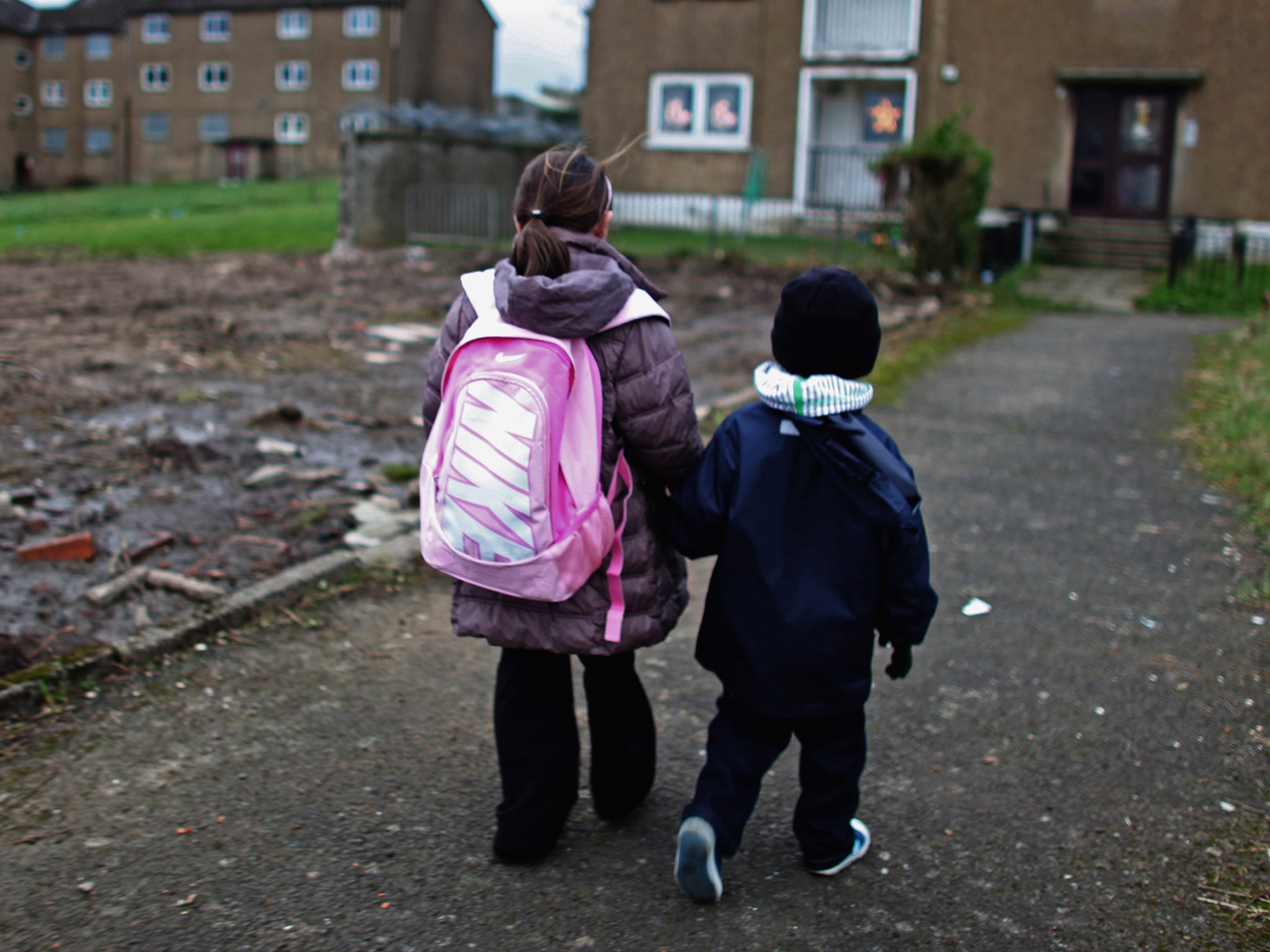Clever pupils from deprived backgrounds less likely to be judged 'above average', study finds
The research also indicated a gender bias in teachers' assessments

Teachers are showing signs of cultural and gender bias when it comes to judging their pupils’ work, according to a major new study.
The research, which looks at the performance of almost 5,000 seven-year-olds, showed clever pupils from disadvantaged backgrounds are less likely to be judged “above average” than those from more affluent homes - even if they scored the same marks in tests.
A child’s gender can also influence their teacher’s perceptions with boys more likely to be judged above average in maths and girls in reading - amongst pupils with equal marks.
Tammy Campbell, from UCL Institute of Education and author of the report - Stereotyped at Seven? Biases in teachers’ judgements of pupils’ ability and attainment, suggested teachers may be influenced by national statistics - showing lower performance by boys in reading and girls in maths.
She added that national education policies - by focussing on the need to improve the performance of disadvantaged pupils - may also have been counter-productive in suggesting to teachers that they were lower attainers.
“Initiatives such as the pupil premium (which gives cash to schools for every disadvantaged they take in) may convey the message that children from lower-income families are inherently less able,” said Ms Campbell, whose research was funded by the Economic and Social Research Council and published by Cambridge Journals Online.
“This might make it more difficult to recognise a low-income child who is performing well or at least at the average,” she added.
However, ministers have praised the impact of the pupil premium considered one of the flagship education policies of the Coalition Government, for helping improve the performance of disadvantaged pupils.
“Teachers tended to perceive low-income children are less able than their higher income peers with equivalent scores on cognitive assessments,” said the report, “For example, 29 per cent of children from lower income families were rated below average at reading by their teachers compared to 20 per cent of their equally-able peers from more affluent homes. The difference was similar in maths.”
It added: “A child’s gender can also influence a teacher’s perceptions, Boys were more likely to be judged above average in maths than girls who had scored equally well on cognitive tests. By contrast, girls were more likely to be judged above average in reading than equally-able boys.”
Children with special educational needs were often under-rated by teachers, too, when their tests scores equalled those of pupils with no special needs, the report added.
10 best primaries and secondary schools
Show all 20However, the research failed to detect much evidence of children’s ethnicity affecting teachers’ assessments - although black Caribbean girls did tend to get under-rated in both reading and maths. Teachers were also prone to underrate Pakistani girls in reading and overrate Bangladeshi boys in maths.
Ms Campbell suggested that teachers could undergo specialist training to help them recognise ability in pupils irrespective of their background.
“These findings show that there are factors affecting attainment, as evaluated by teachers, which are outside of children’s and parents’ control,” she said. “Unless they are addressed, they may continue to play a part in creating and perpetuating inequalities.”
Under the research, all the seven-year-olds were asked to undergo a cognitive test. At the same time, their teachers were asked to rate their ability.
How to combat teachers' prejudices
Little research has been done into how to combat stereotyping in teachers when it comes to assessing their pupils.
However, one study in the Journal of Multiculturalism in Education argues that the starting point may be to present teachers with alternative stereotypes in pupils in their training - i.e a successful pupil from a disadvantaged family, a girl who is good at maths and a boy who enjoys reading.
The article, by B.D. Earp, also suggests that teachers should be taught to presume motivation and ability in each student - and to be balanced and constructive in feedback to all pupils when discussing their work.
They should also be taught about the dangers of unconscious prejudice for the pupil. Earp’s study concentrated on the performance of ethnic minority students but Campbell believes his conclusion holds true generally: “A teacher who is unaware of the basis for her judgements may conclude that they stem from the realities of her student’s performance rather than (directly or indirectly) from the activation of stereotypes about that student’s (ethnic) group.”
Campbell believes this research “provides the beginnings of suggestions for change”.
Subscribe to Independent Premium to bookmark this article
Want to bookmark your favourite articles and stories to read or reference later? Start your Independent Premium subscription today.

Join our commenting forum
Join thought-provoking conversations, follow other Independent readers and see their replies